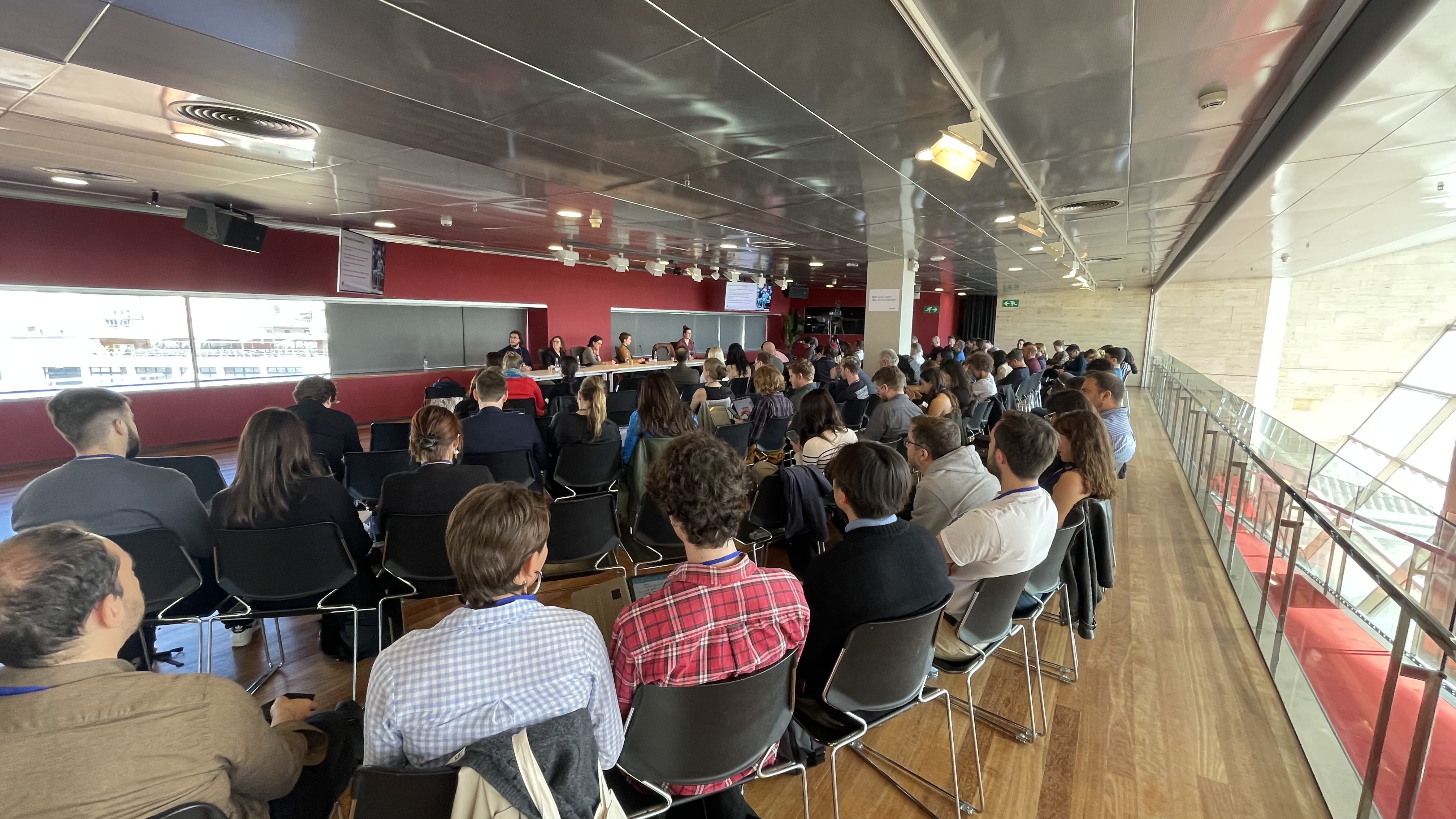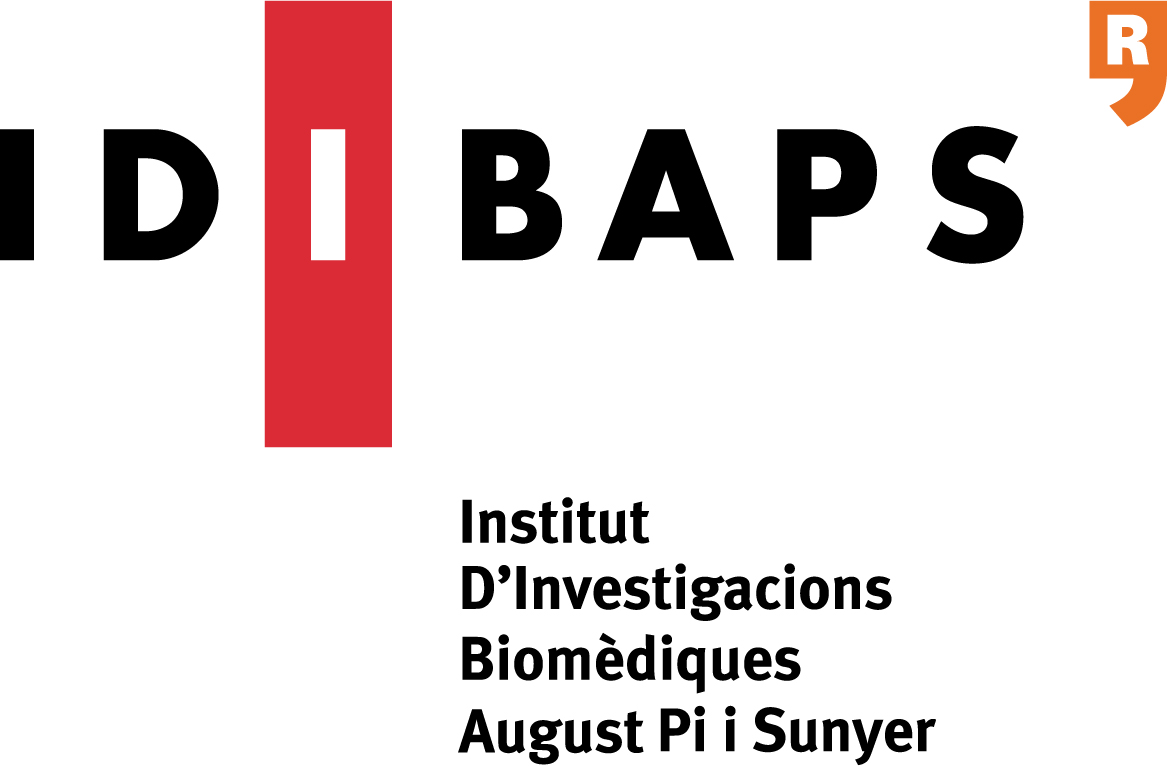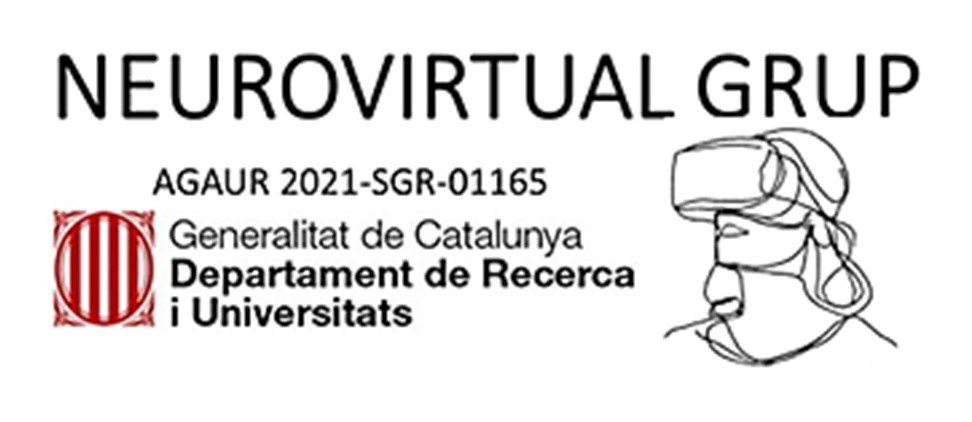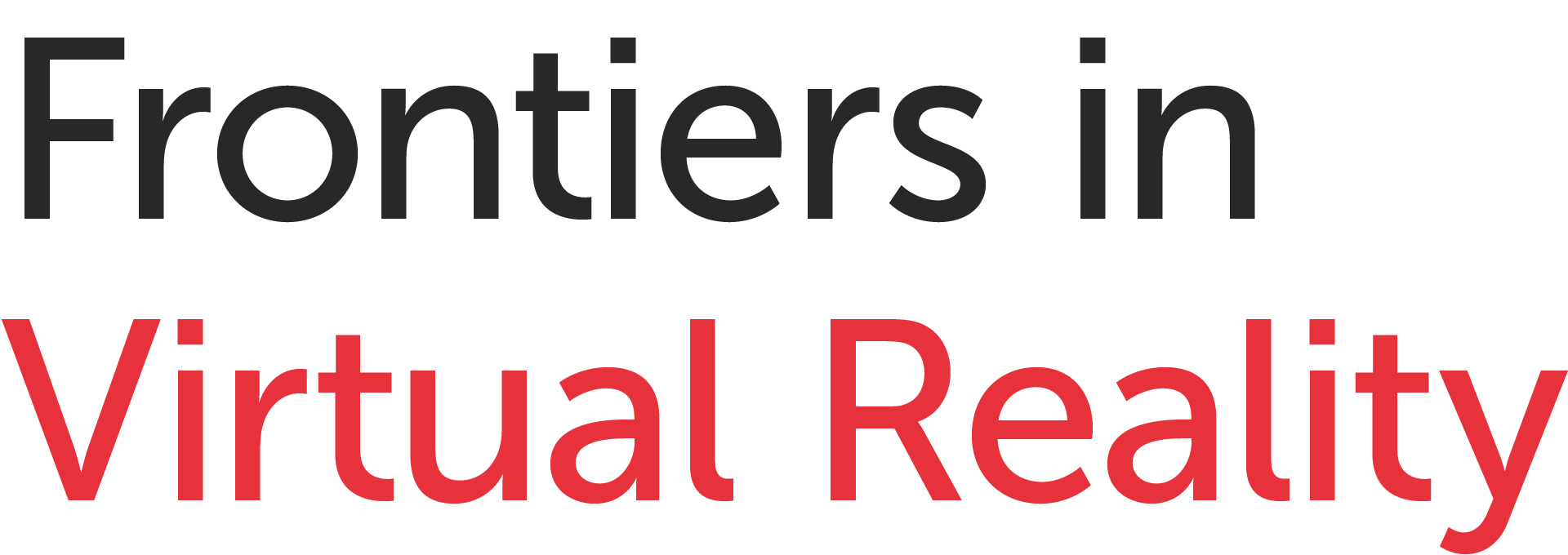

VENUE The Mirador, CCCB Barcelona, Spain
BACKGROUND
The metaverse concept is that of a large-scale social environment based on the convergence of virtual and physical reality. Participants can take part in the metaverse through virtual, augmented or mixed reality. They can carry out everyday activities together, ranging from entertainment through to education, business, politics, health or even legal proceedings. At this time the metaverse is more of an idea than a reality, but a number of nascent systems exist, and all the technological components, including solutions involving AI, are available to bring this idea into existence.
The metaverse may have a profound impact on the way we live, bringing new beneficial ways of carrying out educational, social and economic activities, but may also introduce problems in the ethical, legal, business, psychological, political and social sphere. There will be opportunities and problems that at the moment we cannot envisage, since each new technology brings with it fundamental changes that are hard to foresee. The mobile phone in conjunction with the world wide web and social media have led to revolutionary changes in society including on the positive side deep connectivity between people, but on the other, a threat to democracy. The immersive nature of the metaverse will have the potential to enhance both the positive and negative impact by an order of magnitude.
The EMRN is a research group that studies these various aspects of the metaverse concept. The 2024 EMRN conference will feature the EMRN members and their work, but we invite other stakeholders from academia, industry and policy to contribute to the discussion.
We invite submission of papers and posters, in order to foster new collaborations, and generate new ideas, moving towards a greater chance of envisaging the future. We are also looking forward to exciting and inspiring keynotes and panels that enable a multi stakeholder dialogue.
By bringing research, industry and policy makers together to engage in an open discussion we can enhance the probability of a ‘metaverse for the good’.
We encourage participation of younger researchers, so there will be a special session for rapid presentations corresponding to submitted posters.
Publication in the Frontiers in Virtual Reality Journal
- Papers submitted were reviewed and will be able to be submitted, in an expanded form, for a Research Topic in the journal Frontiers in Virtual Reality.
- The Research Topic call is A Metaverse for the Good: Design, Application and Understanding.
Best Paper Prizes offered by Frontiers in Virtual Reality
Papers were evaluated by the Programme Committee, taking into account conflicts of interest. The final results are:-
Best Paper
- Joanna Luberadzka, Enric Guso Muñoz, Umut Sayin and Adan Garriga Torres - Acoustic coherence in extended reality: challenges and strategies
Runners-Up
- Georgiana Cristina Dobre, Marta Wilczkowiak, Marco Gillies, Sylvia Xueni Pan and Sean Rintel - Avatars in mixed reality meetings: A field study of avatar facial realism on felt and perceived emotion
- Toinon Vigier, Didier Acier, Samuel Bulteau, Solène Thevenet and Yannick Prié - Towards immersive teleclinics in the Metaverse: the case of neuropsychological consultation
- Lucie Kruse, Catharina Rudschies, Sebastian Rings and Frank Steinicke - Considering Psychotherapy in the Metaverse
- Anthony Steed - Some Technical Challenges of Scaling from Social Virtual Reality to Metaverse(s)
Notable Mention
- Mikołaj Łysakowski, Jakub Gapsa and Piotr Skrzypczynski - Origami Unfolded: Augmented Reality and Machine Learning Integration for Manipulative Training Scenarios
Photos
Conference Proceedings
Proceedings - A Metaverse for the Good doi:10.5281/zenodo.10993750
Program
9th April, Day 1
08:30-9:00 Registration
- Please bring your receipt for registration.
- You may be registered for day 1 only, or both days.
09:00-9:15 Opening Session
Welcoming Remarks:
Prof. Joan Guàrdia Olmos, Rector Universitat de Barcelona
Prof. Mel Slater, EMRN Coordinator
09:15-10:45 Metaverse for Education and Industry
9:15-9:20 Moderator: Dr Omar Niamut, Director of Science, TNO
09.20-09:35: Ágnes Karolina Bakk, Paul Ballack and Fernanda Parente - Current Challenges of Using Metaverse-like Environments for Educational Purposes
09:35-09:50: Martin Dobricki, Michael Rihs and Sina Shahmoradi - EcoVR – A virtual reality for learning eco-friendly food choice
09:50-10:05: Helena Ortiz-Gil, Fernando Canet and Xavier Ruyra - Advances and Challenges in the Use of Virtual Reality for Surgical - Planning in Cardiology
10:05-10:45: Panel Discussion including Xavi Navarro, Capgemini; Charlie Pearmund, kiin.tech; Gillian Shanahan, Meta; Leland Hedges, Pico XR.
10.45-11.15 Coffee break & XR demos
11:15 - 12:45 Towards an Intelligent Metaverse: The use and impact of AI
11:15-11:20 Moderator: Prof. Doron Friedman
11:20-11:35: Sebastian Rings, Lucie Kruse, Marvin Grabowski and Frank Steinicke - Anything is Possible with an Intelligent Virtual Agent at the Table
11:35-11:50: Marco Gillies - AI for Movement Interaction in VR
11:50-12:05:
Mikołaj Łysakowski, Jakub Gapsa and Piotr Skrzypczynski - Origami Unfolded: Augmented Reality and Machine Learning Integration for Manipulative Training Scenarios
12:05-12:45: Panel Discussion: Do we want AI to help shape a pro-social metaverse and is it legal?
with Miquel Peguera, Doron Friedman, Marco Gillies, Mel Slater
12.45 – 13.15 Poster Advertisements
Moderator: Michele Di Dalmazi
In this rapid fire session poster presenters will have a brief time to advertise their posters.
13.15 – 14.15 Lunch Break, Poster session and XR demos
14.15 – 15.15 Imagining the future: Multi Stakeholder discussion on the future of the Metaverse
Moderator: Michael Barngrover
Invited stakeholders from industry, government, the European Commission, policy makers, and EMRN members including:
Isabelle Hupont Torres, European Commission; Kaj Helin, VTT; Jennifer Cheung, Digital Catapult UK; Juan Bossicard, Meta and
Luis Herreras, Daiichi Sankyo España.
15.15 – 15.45 Coffee break, poster session and XR demos
15.45 – 16.35 European Projects
15:45-15:50 Moderator Prof. Eric Brousseau
15:50-16:05 Simona Neri - GuestXR: A Machine Learning Agent for Social Harmony in eXtended Reality
16:05-16:20 Eva Fringi, Thibault Vicente, Stephen Brewster, Lorenzo Picinali and Alessandro Vinciarelli - Sonicom: Transforming auditory-based social interaction and communication in AR/VR
16:20-16:35 Justyna Świdrak, Maria V. Sanchez.Vives, Ferran Argelaguet and Maria Roussou - META-TOO: Investigating gender-based inappropriate social interactions in the Metaverse
16.35 – 17.30 Discussion with Notable Industry Figure
Moderator: Zillah Watson, ex BBC Radio 4 and Commissioning Editor for Virtual Reality & Head of BBC VR Hub, Honorary Professor at UCL, founder of Phase Space.
Speaker: Christina Jackson, External Engagement Lead for Reality Labs Policy at Meta.
10th April, Day 2
08:30-9:00 Registration for day 2 only
- Please bring your receipt for registration for day 2 if not already registered.
09.00 - 11.00 Ethical, legal and political implications of the Metaverse
09:00-09:05 Moderator Prof. Aurelio Lopez-Tarruella Martinez
09:05-09:20: Mariachiara Tirinzoni - Metaverse, implemented A philosophical perspective on agenda-setting ethical tools for the development of immersive technologies
09:20-09:35: Verity McIntosh - What do policymakers need to know about harassment in the metaverse?
09:35-09:50: Emmie Hine - Extended Reality is a Fundamentally Mediated Reality
09:50-10:05: Lucie Kruse, Catharina Rudschies, Sebastian Rings and Frank Steinicke - Considering Psychotherapy in the Metaverse
10:05-10:20: Giovanni Sorrentino - Biometrics and Inferred data in the metaverse
10.20 - 11.00: Panel discussion led by Aurelio Lopez-Tarruella Martinez, University of Alicante; Aki Jarvinen, Digital Catapult UK; Dani Shanley, Maastricht University; Eimear Farrell, AI4GOV Ambassador.
11.00 – 11.30 Coffee Break, poster session and demos
11.30 – 13.00 Creating the Metaverse: Technical Challenges and Solutions
Moderator: Prof. Sylvia Xueni Pan
11.30–11:45: Anthony Steed - Some Technical Challenges of Scaling from Social Virtual Reality to Metaverse(s)
11:45-12:00: Sebastian Friston and Anthony Steed - A Brief Review of Asymmetric Social VR
12:00-12:15: Joanna Luberadzka, Enric Guso Muñoz, Umut Sayin and Adan Garriga Torres - Acoustic coherence in extended reality: challenges and strategies
12:15-12:30: Ju Zhang, Yuke Pi, Haoyang Du and Sylvia Xueni Pan - Digital Twin Embodied Interactions Design: Synchronized and Aligned Physical Sensation in Location-Based Social VR
12:30-12:40: Hossein Javidnia, Diego Gonzalez, Arman Najari, Cai Felip and Yolanda Gómez - Digitizing Fashion: 3D Garment Try-On and Avatar Creation Try-On and Avatar Creation
12.40–13.00: Panel discussion with the authors.
13.00 – 14.00 Lunch, poster session and demos
14.00 – 15.30 Medicine, Neurotechnology and the Metaverse
14:00-14:05 Moderator: Prof. Maria V. Sanchez-Vives
14:05-14:20: Eduardo Garcia-Giler, Bill Zhang, Mariana Misawa, Yulia Pyatova, Monica Daibert-Nido, Atri Sen, Samuel N. Markowitz, Kyle Cheung, Danielle Tchao, Pi Nasir, Inci Yamana Bajin, Eric Bouffet, Lora Appel and Michael Reber - Immersive Virtual Reality: a paradigm shift and a disruptive tool for visual neurorehabilitation
14:20-14:35: Toinon Vigier, Didier Acier, Samuel Bulteau, Solène Thevenet and Yannick Prié - Towards immersive teleclinics in the Metaverse: the case of neuropsychological consultation
14:35-14:50: Paweł Śniatała, Szymon Baliński, Mariusz Głąbowski, Sławomir Michalak, and Ewa Kozielewska–Zwierska - Virtual, Personalized Rehabilitation Environment
14.50–15.30: Panel Discussion including:
Christoph Guger, BCIs in XR;
Irina Shiyanov,
Maria V. Sanchez-Vives, Neurotechnology and the Metaverse: state of the art and vision,
and a round-table discussion with all presenters.
15.30– 17.05 Identity and the body - metaverse applications
15:30-15:35: Moderator: Mel Slater
15:35–15.50: Georgiana Cristina Dobre, Marta Wilczkowiak, Marco Gillies, Sylvia Xueni Pan and Sean Rintel - Avatars in mixed reality meetings: A field study of avatar facial realism on felt and perceived emotion
15:50-16:05: Beñat Amestoy, Tony Donegan, Isaac Calvis, Justyna Świdrak, Edgar Rodriguez de la Calle, Andrés Combalía, Ramón Oliva and Maria V. Sanchez-Vives - Focus groups in the Metaverse: the experience of shared virtual spaces for patients, clinicians and researchers
16:05-16:20: Yuke Pi, Sylvia Xueni Pan, Mel Slater and Justyna Świdrak - Embodied Time Travel in VR: Witnessing Climate Change and Action to Overcome It
16:20-16:35: Pablo Pérez, Marta Orduna, Jesús Gutiérrez and María Nava-Ruiz - Towards the Incluverse: an inclusive metaverse (for people with intellectual disability)
16:35-16:50: Adrià Gabarnet, Adrián Montesano and Guillem Feixas - Construing the virtual self: The psychological functions of virtual identity in online videogames
16:50-17:05: Jonathan Giron, Ori Chajuss, Emi Schenkelbach Kliener and Einat Geva - Navigating the Metaverse: Enhancing Non-Verbal Communication Through Externalized Interoceptive Signals
17.05–17.15: Question and answer session.
17.15 – 18.00 Closing session
17:15-17:30: Remarks by Prof. Mel Slater
17:30-18:00: Dr Nonny de la Peña Founder of Emblematic, Program Director (Narrative and Emerging Media) + Professor of Practice, The Sidney Poitier New American Film School, Arizona State University. "De la Peña has been on the cover of the Wall Street Journal magazine as a WSJ 'Technology Innovator of the Year' and has been called 'The Godmother of Virtual Reality' by Engadget, The Guardian and others. Fast Company named her 'One of the People Who Made the World More Creative' for her pioneering work in immersive journalism, a field she is widely credited with establishing."
Programme Committee
Mel Slater (Chair), Aurelio Lopez-Tarruella Martinez, Doron Friedman, Maria V. Sanchez.Vives, Matthias Quent, Michael Barngrover, Omar Niamut, Sylvia Pan
Support
Event Lab
IDIBAPS
UB
- Dario Bellido
- Ramon Oliva
- Jaume Gallego
- Michael Wiesing
- Alex Fuentes Raventós
- Lisa Izzouzi
- Brenda Ryan (IDIBAPS)
- Roger Montserat
- Reiya Itatani
- Alessandro Clocchiatti (Visitor)
Institut de Neurociències de la UB
Meta
Thanks to:
This web site may change from day to day.
The EMRN is being led independently by the constituent research institutions, some of whom had received funding provided through an unrestricted gift by Meta.










